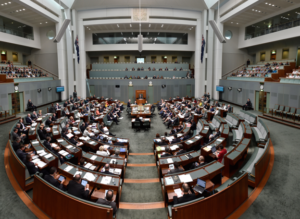How Every Lawmaker Can Be Part of the Solution to Human Trafficking
Statement by the Interparliamentary Taskforce on Human Trafficking
for Human Trafficking Awareness Day on January 11, 2023
Every year since 2010, the President of the United States has dedicated the month of January to education and awareness about human trafficking, and our primary mission at the Interparliamentary Taskforce on Human Trafficking is to educate policy makers about this atrocity and how to stop it.
One of the greatest humanitarian crises of our time, human trafficking, impacts every nation and every community across the globe. It is the second largest criminal enterprise, enslaving millions of people throughout the world in sexual exploitation, labor exploitation, organ harvesting, forced marriage and other forms of modern slavery. There are currently more victims of human trafficking now than at any other time history, and this number is growing.
These atrocities generate more than $150 billion annually, a sum which represents a significant source of funding for every adversarial nation that is threatening the stability and security in our world today.
Why is human trafficking a global security issue?
The security of the United States, Europe and the world is threatened by nations such as China, Russia, North Korea, Iran and the terrorist group ISIS which all use of systemic human trafficking abuses to fund their operations. This makes human trafficking unique from other human rights abuses because its escalation directly fuels the instability of the entire world.
For example, it is widely known that China exploits at least 1 million Uyghurs under a massively profitable state-sanctioned human trafficking scheme. Twenty percent of the world’s cotton supply, or 1 in 5 garments, are likely to be infected by Uyghur forced labor. The Uyghur Forced Labor Prevention Act, which went into effect in June of 2022 in the United States, is a positive example of model legislation which aims to ensure that goods made by Uyghur forced labor victims never enter global markets. Earnings from this highly lucrative human trafficking scheme revert to the Chinese State, bolstering a complex surveillance apparatus intent on undermining and usurping America’s markets and leading industries.
Russia also has a long history of engaging in state-sponsored human trafficking and is currently home to thousands of North Korean migrant workers. Until 2018, Russia held a formal agreement with North Korea to receive 20,000 North Koreans every year for exploitive labor exploitation. Russia and China both profit from significant investments and partnerships in the Democratic Republic of Congo, where an estimated seventy percent of all the world’s cobalt and green energy is harvested in mines by approximately 40,000 children, some of them as young as four years old. Undoubtedly, these sources of funding contribute to the Russian war machine wreaking havoc in Ukraine. As survivor-leader and Task Force Member Karola De la Cuesta stated, “Human trafficking victims are living under horrible conditions and often treated worse than animals. For those who are not recovered, many of them die because of the horrible conditions, abuse or suicide. It is a global war that leads to more crime and insecurity because victims become part of the criminal’s income stream which then funds other criminal acts which make society more unsafe.”
Human trafficking is exacerbated by every other crisis in the world.
Prior to the crises in Ukraine and Afghanistan, there were more than 280 million migrants across the globe. In 2020 alone, a record 80 million people were forced to flee their homes. A significant number of these migrants dream of finding refuge in Europe, a region that has become a central hub in efforts to prevent and stop human trafficking, but many find their dreams dashed by traffickers who lure financially and socially vulnerable migrants into sex and labor trafficking schemes.
In Afghanistan, the absence of the rule of law has placed all citizens at risk, with women and children especially vulnerable to forced sex slavery and early marriage. Despite the Taliban’s statement in December 2021 declaring forced marriage illegal, there are substantial reports the crime has continued to increase. Under Taliban rule, both boys and girls are frequently sold as sex slaves or as “brides.” According to the 2022 U.S. Trafficking in Persons Report, the Taliban has, “continued a government pattern of sexual slavery in government compounds.” Families are asked to make the unfathomable choice to sell their own children into slavery in order to feed other family members due to the Taliban-caused humanitarian disaster that is grappling the country. Women, girls and boys are used as “rewards” for Taliban leadership and to strengthen its economic power so that they can continue their repressive rule.
What can legislators do to combat this globally?
Human traffickers are organized, and the most effective efforts to combat them are organized as well. To build lasting, consensus-based solutions to the challenge of modern slavery, there must be increased cooperation between governments and social partners.
Only 1% of victims of human trafficking are ever recovered and less than 1% of traffickers are prosecuted. Additionally, 88% of trafficking victims will pass through a medical facility at some point during their trafficking experience, and most of those targeted are children between the ages of 11 and 15. Therefore, it is critical that we prioritize legislation to increase accountability measures for these criminals and also legislate standardized common indicators of modern slavery which will increase the rate of reporting suspected human trafficking especially at schools, hospitals, and other common intersections.
There must also be a priority on laws which combat online sexual exploitation, which is one of the fastest growing modern threats against children. With increases in armed conflicts around the world and cross-border migration, the use of online platforms to exploit children has become a growing method of grooming and recruitment. Most countries have national anti-trafficking
laws, but fewer countries have laws which protect children online from trafficking and sexual abuse specifically.
It is also imperative that each country establish a trauma-informed National Survivor Advisory Council. Survivors of trafficking offer necessary insight and expertise into the anti-trafficking field that contributes to the development of governmental and non-governmental policies and practices. Their engagement also empowers other lived-experience experts. (Sign our statement of agreement with this today.)
Conclusion
The cycle of human trafficking and modern slavery will continue unless there is increased awareness about human trafficking by government leaders and improved legislation on these aspects of modern slavery and more.
One of the primary objectives of the Parliamentary Task Force on Human Trafficking is to educate lawmakers and government leaders about creating actionable solutions to stop this heinous criminal enterprise. We hope that more lawmakers will prioritize this in their Parliaments and Congresses, because collectively we can accomplish more.


